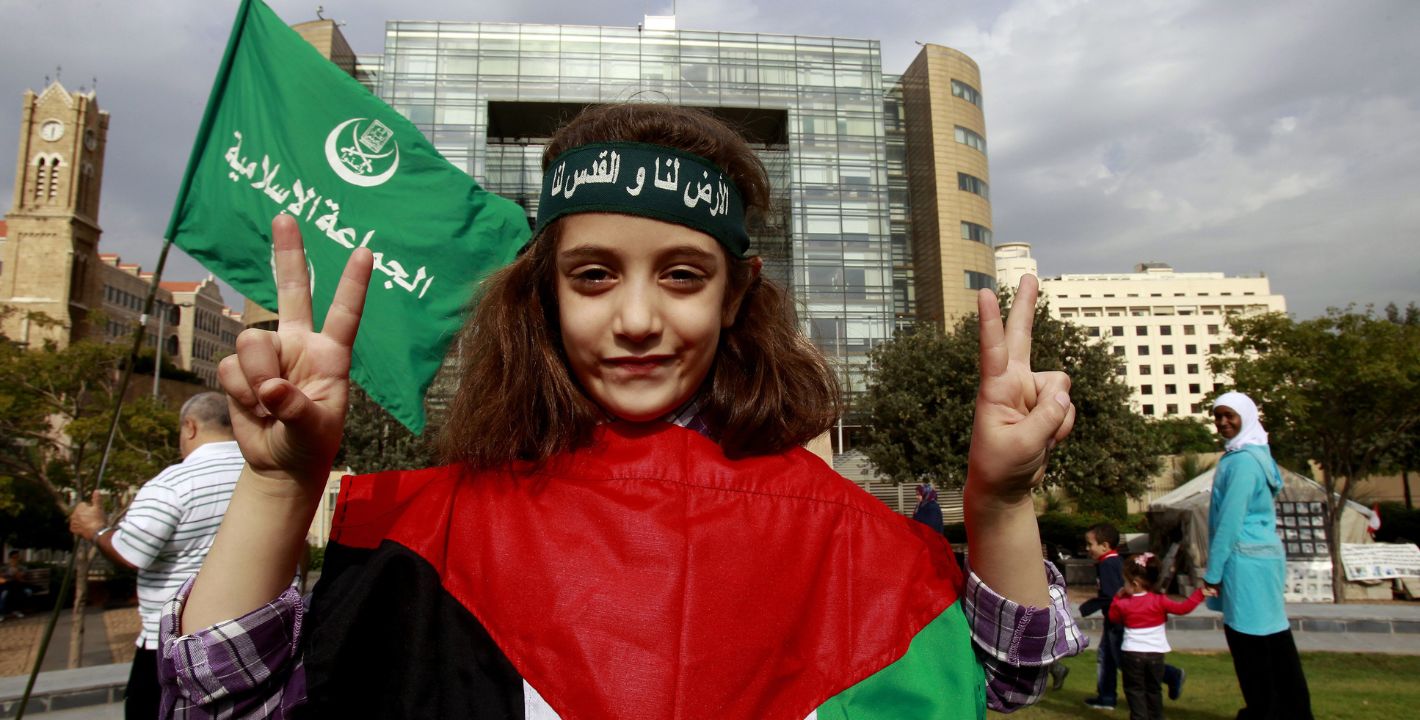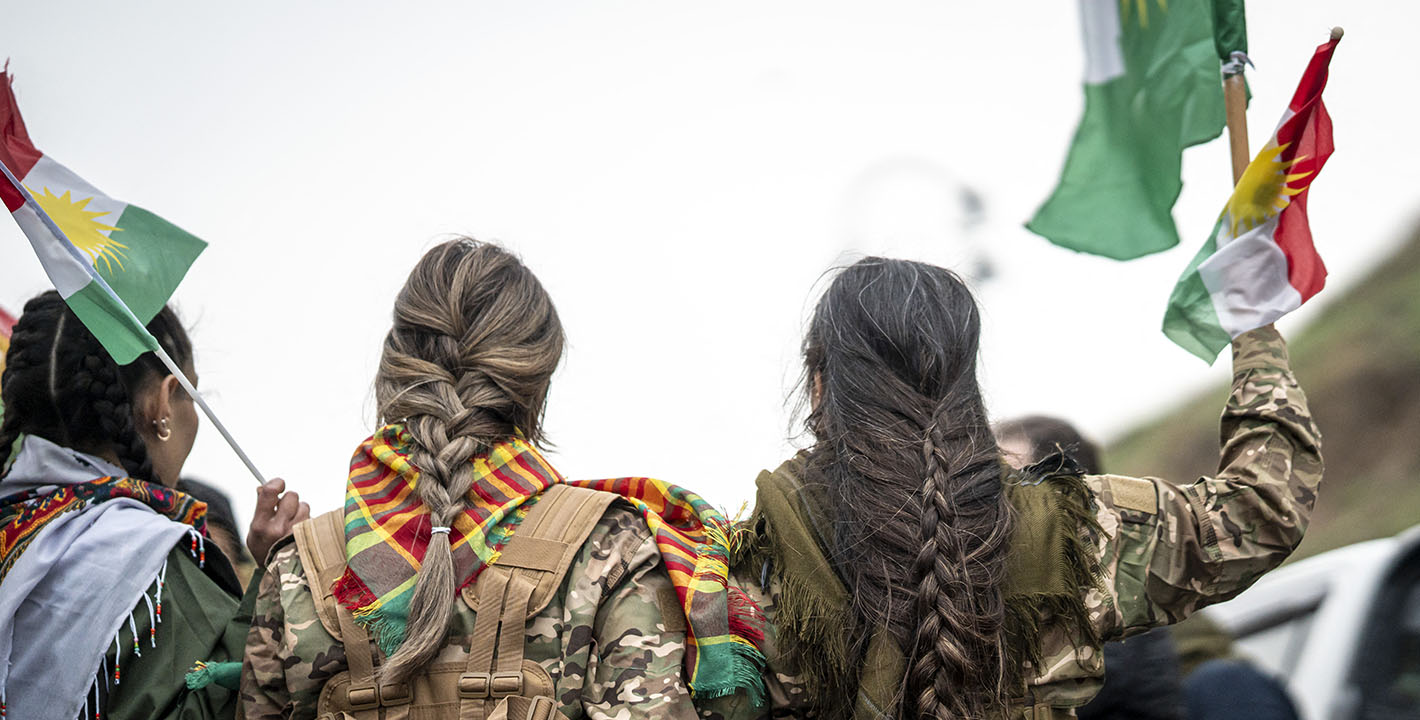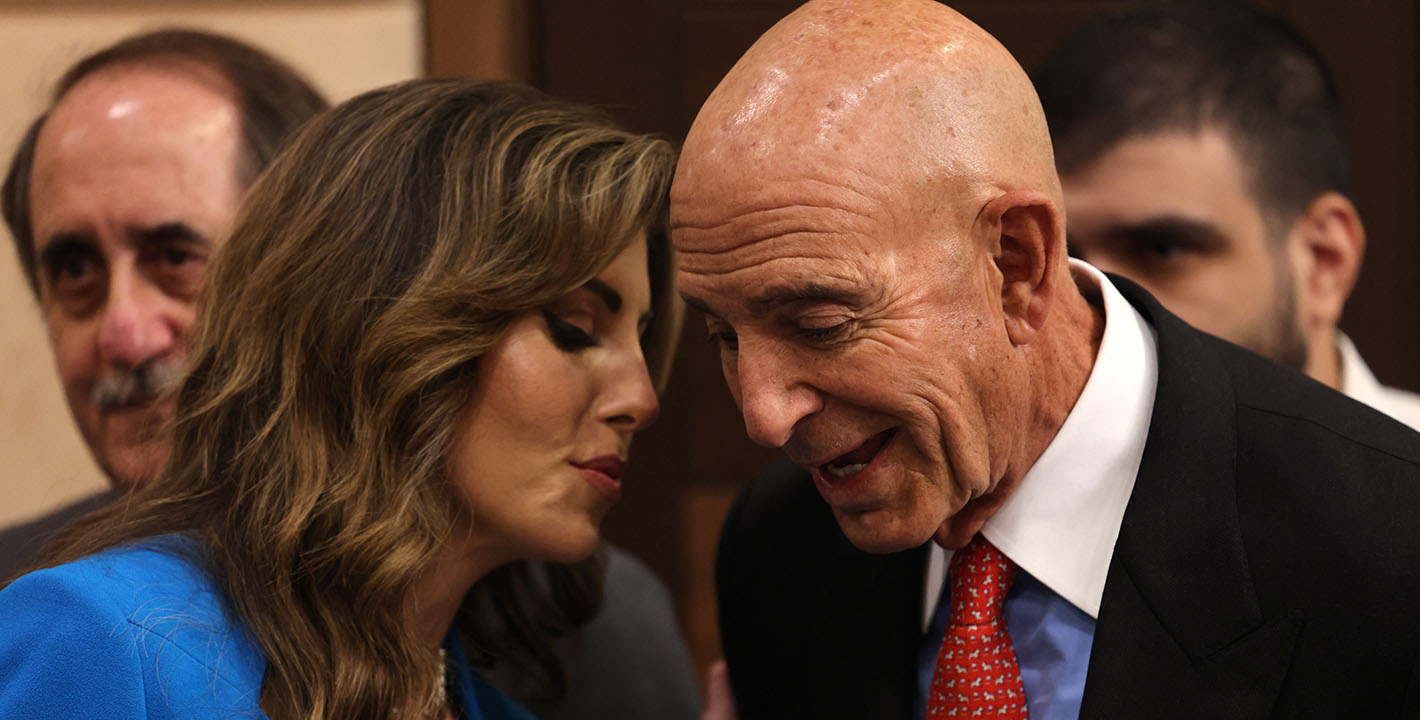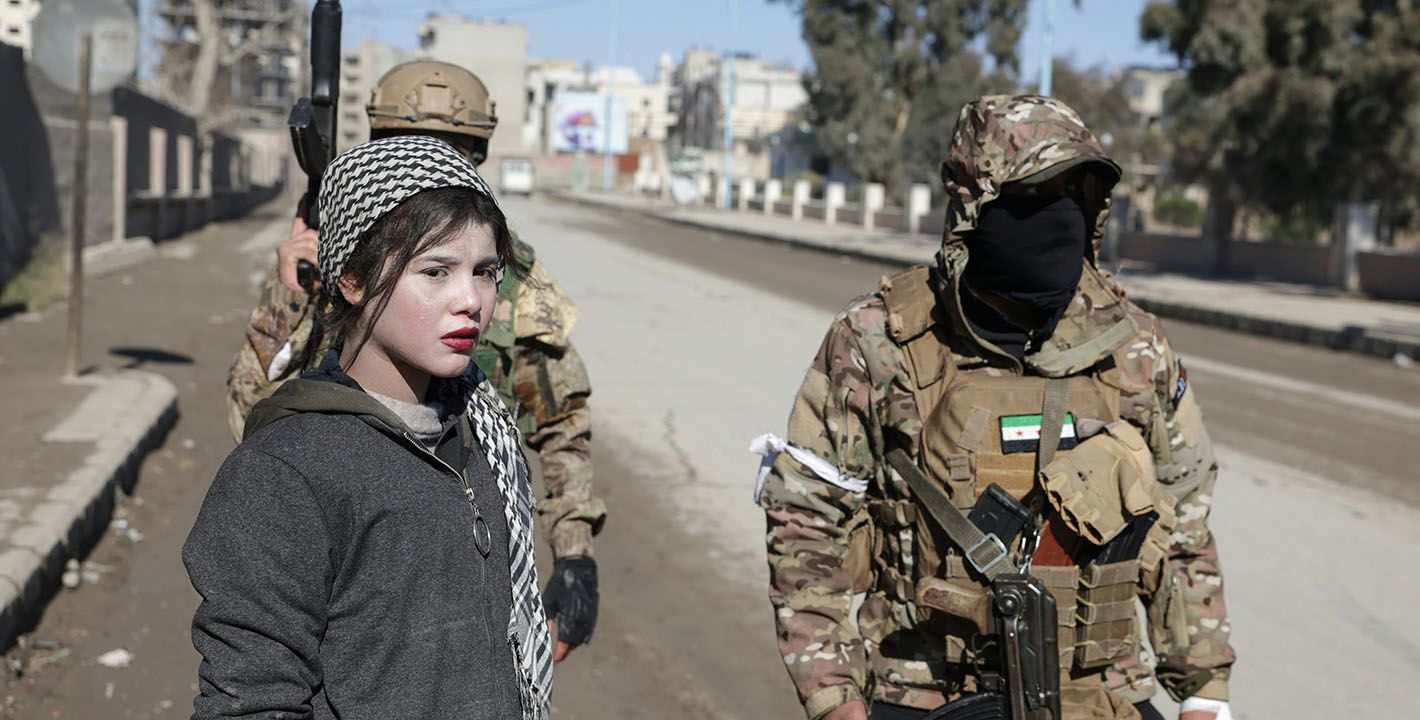Michael Young
{
"authors": [
"Michael Young"
],
"type": "commentary",
"blog": "Diwan",
"centerAffiliationAll": "dc",
"centers": [
"Carnegie Endowment for International Peace",
"Malcolm H. Kerr Carnegie Middle East Center"
],
"collections": [],
"englishNewsletterAll": "menaTransitions",
"nonEnglishNewsletterAll": "",
"primaryCenter": "Malcolm H. Kerr Carnegie Middle East Center",
"programAffiliation": "MEP",
"programs": [
"Middle East"
],
"projects": [],
"regions": [
"Levant",
"Lebanon",
"Middle East"
],
"topics": [
"Political Reform"
]
}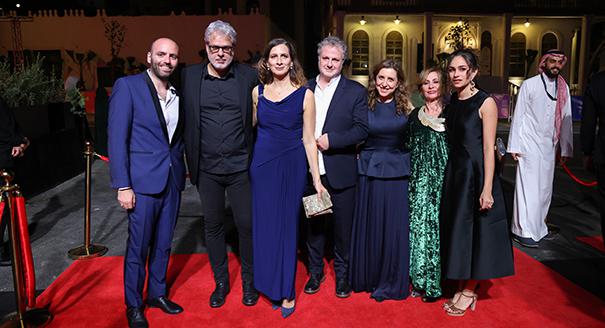
Source: Getty
Children of the Night
In their latest film, Joana Hadjithomas and Khalil Joreige open a Pandora’s Box from Lebanon’s wartime past.
Watching Memory Box, the most recent movie by Lebanese filmmakers Joana Hadjithomas and Khalil Joreige, those of their age who lived through Lebanon’s war years cannot help but be strongly affected. The film is built around three interlocking themes—generational relations, memory, and deceit disguised as silence.
The film begins on Christmas Eve, when Alex, the daughter of Maia, the film’s central character, receives a large carton at her and her mother’s home in Montreal. Alex’s grandmother, her daughter not yet home, wants to send the box back with the postman, but Alex demurs. We soon discover that the box was mailed after the death of Maia’s closest friend, Liza. It contains returned notebooks, cassettes, and photographs that Maia had sent Liza during the 1980s, when she was still in Beirut and Liza in Paris. In those missives from a country at war, she vowed to tell her friend everything. Alex wants to know why her grandmother is so hesitant to discuss the box, but gets no response. The rest of the film takes us into the contents of what was sent, which Alex uncovers bit by bit, stealthily, discovering more about her mother and the unlit corners of her own family.
Hadjithomas and Joreige, who are married, are from a generation of Lebanese whose teenage years were in the 1980s. They describe a period of their life and their country when the appetites and impulses of youth hit up against restrictions imposed by the murderous conflict outside. That Memory Box is very much a personal venture for the filmmakers is evident, and they have stated that some notebooks and photographic contact sheets in the film are theirs. Memory Box may not be autobiographical, but everything in it is partly so for anyone who came of age during that period.
To Hadjithomas and Joreige, now seems to be the right time to tell their story, because their children are old enough to understand. From the ruined urban landscapes of wartime Beirut, to the ambient violence, to the fraught relationship with overanxious parents, to the deep friendships formed in conflict, Memory Box is a slice of life from one age group to younger Lebanese for whom the war remains an abstraction. It comes as no surprise that the film is dedicated “To our children.”
In that way, it is also a story about memory, and more accurately the Pandora’s Box that memory opens. Which is why the word “box” in the title is no coincidence. The paradox of memory is that good memories are infinitely crueler than the bad ones. They provoke an unsettling longing for lost years that are often viewed as idyllic from the vantage point of middle age. They stare at you, goad you, expose your decay, but also remind you that you were once infinitely more alive.
It’s this tension that permeates the movie, as Maia is caught between a yearning for her past and what it had unleashed in her, and a desire to block out those things that made her wartime memories so nightmarish personally. Ultimately, it is Alex who resolves this dilemma. Her curiosity, her efforts to draw on her mother’s passions to add pepper to her own more sheltered life in frigid Montreal, force Maia out of her shell to reveal more about herself and break with deceit, a third theme the movie explores.
Anyone familiar with Lebanon (at least before the advent of Facebook made every idiocy worthy of mention) knows there is often a preference in the society to leave things unsaid. This excessive discretion is also a form of deception, and Memory Box is built around multiple levels of deception: Maia’s deceptions with regard to her parents; Alex’s deceptions with regard to her mother, and Maia’s deceptions with regard to her daughter; and above all the grandmother’s deception with regard to the society around her in wartime Lebanon. This says much about a country whose postwar order was built on a vast lie claiming the postwar revival was a success, when what was taking place was the imposition of a kleptocracy that has robbed the Lebanese of everything.
Still it’s heartening that a number of Lebanese filmmakers are consolidating the foundations of a very stimulating form of national cinema. Nadine Labaki’s and Ziad Doueiri’s films routinely evoke the critics’ interest. Last year, Abbout Productions, which Hadjithomas and Joreige established in 1998 and which is headed by producer Georges Shoucair, released two films that received recognition internationally. Memory Box was one of them, being nominated for the Golden Bear prize at the Berlin International Film Festival; Mounia Akl’s Costa Brava Lebanon was the other, and won the Grand Jury Prize at the Seville European Film Festival in November 2021.
Memory Box ends in Beirut, to which Maia and Alex return to commemorate the fortieth day after Liza’s death. It doesn’t ruin the film to say that in that homecoming lies a form of resurrection. The grandmother, back in Montreal, asks Alex to send her a photo of the sun. This is a reminder that Lebanon’s destructive compulsions struggle constantly with the country’s instinct to affirm life. Maia, whose most pathetic moment is captured when, exhausted, she brushes meters of snow off her car in Canada, regains her smile in the Mediterranean light. At first we’re jarred by that hackneyed juxtaposition of images, before a better part of us makes us realize how true it is.
About the Author

Editor, Diwan, Senior Editor, Malcolm H. Kerr Carnegie Middle East Center
Michael Young is the editor of Diwan and a senior editor at the Malcolm H. Kerr Carnegie Middle East Center.
- Axis of Resistance or Suicide?Commentary
- Iran and the New Geopolitical MomentCommentary
Michael Young
Recent Work
Carnegie does not take institutional positions on public policy issues; the views represented herein are those of the author(s) and do not necessarily reflect the views of Carnegie, its staff, or its trustees.
More Work from Diwan
- Axis of Resistance or Suicide?Commentary
As Iran defends its interests in the region and its regime’s survival, it may push Hezbollah into the abyss.
Michael Young
- The Jamaa al-Islamiyya at a CrossroadsCommentary
The organization is under U.S. sanctions, caught between a need to change and a refusal to do so.
Mohamad Fawaz
- Kurdish Nationalism Rears its Head in SyriaCommentary
A recent offensive by Damascus and the Kurds’ abandonment by Arab allies have left a sense of betrayal.
Wladimir van Wilgenburg
- A Mechanism of CoercionCommentary
Israeli-Lebanese talks have stalled, and the reason is that the United States and Israel want to impose normalization.
Michael Young
- All Eyes on Southern SyriaCommentary
The government’s gains in the northwest will have an echo nationally, but will they alter Israeli calculations?
Armenak Tokmajyan


